Windows Start button → All Programs → PuTTY folder
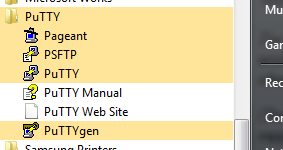
This page is about setting up the program sftp for secure file transfer using
the ssh protocol.
More specifically, it's about installing and using the version of sftp that's
part of the open source, freely available PuTTY package for Windows PC's.
MAC or Linux PC's usually have a version of sftp already built in, so
setup is simpler: see the companion page ssh_mac_linux
for that.
The ssh protocol allows use of a public/private key pair instead of a
login password , and it encrypts file transfers, so an eavesdropper cannot intercept them.
When the user requests a file transfer, the server can verify that the user has the
private key without needing to know the actual contents of the key.
A Google search on "Public Key Cryptography" will provide details about how this
mathematical magic works. For purposes of this writeup it's sufficient that it's
generally considered reliable as long as the private key really remains private.
Security is a complex problem; these notes are not intended for critical situations or when there are specific legal or financial requirements for privacy.
Setup and use of PuTTY includes the following steps (each is described in
more detail below):
Each step is explained in the following sections.
putty-0.62-installer.exe and run it to start the installer.
Here are sample install settings that I used: Most are defaults. A full sequence of
screenshots are included at the end of this document.
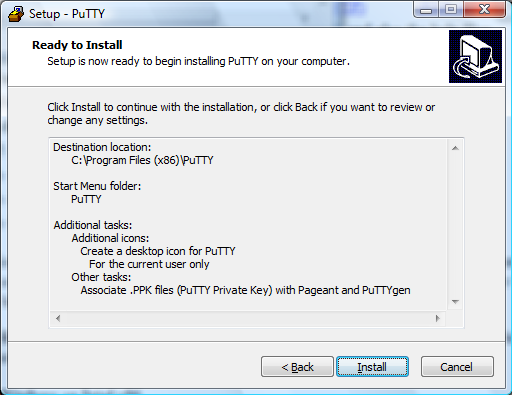
After the install is complete, programs are available in the PuTTY folder:
Windows Start button → All Programs → PuTTY folder

Next we need to generate the keypair: Click the windows Start button, type "puttygen" in
the search box, and click on it to start it.
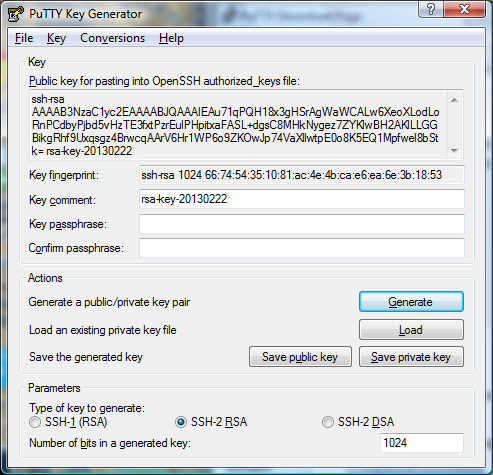
Click the "Generate" button and follow the
instructions. The program will generate and display the new public key as shown in the screenshot above.
We need to do two things with the new key pair
.ssh/authorized_keys on the server. You want
all the text in the box, from "ssh-rsa" through "20130222" in the example shown.
key1priv.ppk
for this example. As an extra level of security you can add a password to
the private key; this is useful if you think there's a chance that someone else might get access
to your PC. I left the password blank for this example.
These steps only need to be performed once.
First select the private key: From the Windows Start button, search for and execute "pageant.exe".
The program will quietly insert an icon in the system tray (the lower right-hand corner of the screen).
It's the PC-with-a-hat icon circled in red in this screenshot.

Double-click the icon to bring up the Pageant menu, select "load key" and select the desired private
key - key1priv.ppk in this example. You can then click "close" to get rid of this window.
Pageant only needs to be run once and remains active until the PC is shut down.
To transfer files, first start the program sftp.exe. It should bring up a window with
a command prompt:

The main commands are
Note: if psftp asks for a password after the open command, then something
is wrong with the key file setup. Probably either pageant isn't running or the
remote server doesn't have the public key properly installed.
Here's an example of running putty-0.62-installer.exe on Windows Vista.

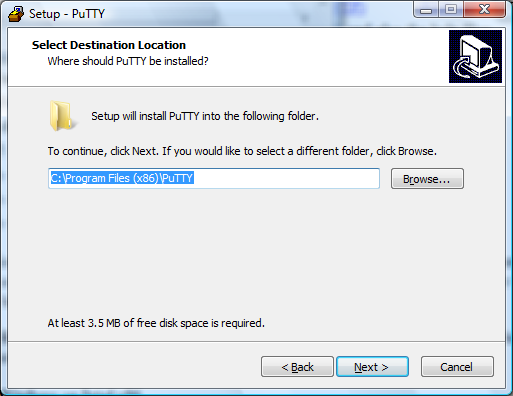
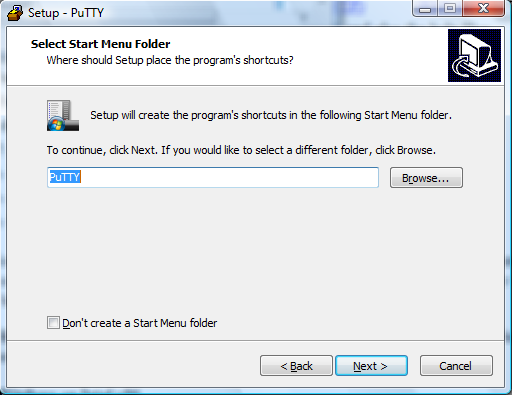
![]()

